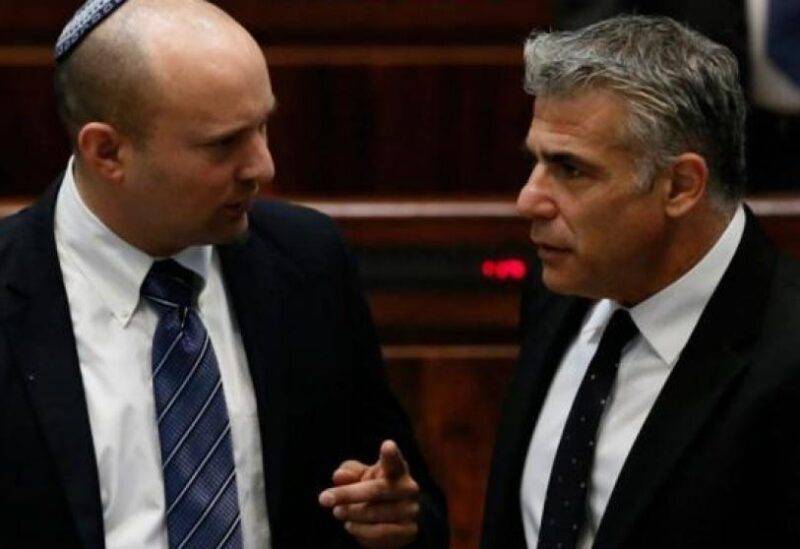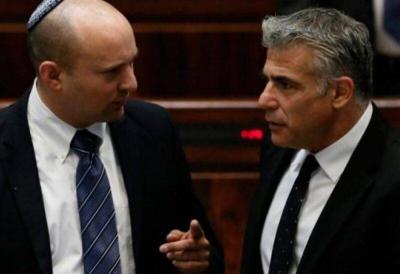The head of Israel's internal security service (Shin Bet) issued a rare warning on Saturday about the possibility of violence during one of the most politically charged periods in decades as the country nears the ousting of Prime Minister Benjamin Netanyahu, the longest-serving prime minister in Israel's history. Netanyahu faces the prospect of ending his 12-year term as prime minister after centrist opposition leader Yair Lapid announced on Wednesday that he had succeeded in forming a governing coalition following the March 23 elections.
The new government, which has not yet been sworn in, will be an eclectic mix of leftist, liberal, right-wing, nationalist, and religious parties, along with an Arab Islamic party for the first time in Israel's history. Netanyahu has warned in online posts that this partnership is a "dangerous leftist government." Some right-wing groups are angry with Naftali Bennett, who leads a small far-right nationalist party and is set to replace Netanyahu in a power-sharing agreement with Lapid. Several of Bennett's posts on social media have been attacked.
Bennett had promised before the elections not to join an alliance with centrist Lapid or any Arab party. Nadav Argaman, head of Shin Bet, stated without naming names, "We have recently observed an increase in incitement and increasingly violent rhetoric, especially on social media." He added, "This rhetoric may be interpreted by certain groups or individuals as speech that permits violent and illegal activity that could cause physical harm."
Since Bennett announced his alliance with Lapid, security forces have intensified protection around him while organizing right-wing demonstrations near the homes of his party members in hopes of preventing them from joining the government. Argaman called on political and religious leaders to exercise responsibility and tone down potential incitement. His warning reminded some in Israel of the period leading up to the assassination of then-Prime Minister Yitzhak Rabin in 1995, who was shot dead by a right-wing extremist for seeking a land-for-peace agreement with the Palestinians. The Israeli left has long blamed Netanyahu, then in opposition, for incitement preceding the assassination. Netanyahu has strongly denied this accusation and repeatedly condemned Rabin's murder.
Lapid and Bennett stated that they hope the "unity government" will address the deep political divisions among Israelis and put an end to hatred. A poll conducted by Israel's Channel 12 on Saturday showed 46% of Israelis supporting the Bennett-Lapid government, while 38% favored holding another election, which would mark the fifth election within nearly two years, with 15% remaining unclear about their stance.
Tensions are expected to escalate further this week when a right-wing Jewish march passes through the Damascus Gate in the Old City of Jerusalem. Violent fighting between Israel and Hamas in Gaza erupted last month, ignited by Israeli-Palestinian confrontations in Jerusalem, around and inside the Old City. Scuffles broke out on Saturday in the Sheikh Jarrah neighborhood of East Jerusalem, where the potential eviction of Palestinians by Jewish settlers played a significant role in the recent conflict between Israel and Hamas.
Al Jazeera reported that Israeli police assaulted and arrested its reporter, Givara Al-Badiri, while she was covering a protest there. A police spokesperson stated that Al-Badiri assaulted police officers and refused to disclose her identity. Footage streamed online showed three or four police officers pulling and pushing Al-Badiri, who was wearing a journalist vest. Al Jazeera also reported that a camera belonging to the reporter was smashed. Al-Badiri was released after a few hours and was barred from entering Sheikh Jarrah for 15 days.




